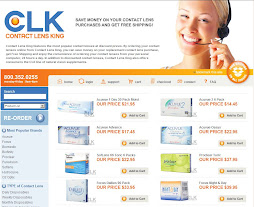With all the youth-oriented product marketing these days, it is easy to get the impression that contact lenses are more fashionable for young people, leaving the assumption that the older or ‘more mature’ are better-suited for bifocals and the like.
Fortunately, that notion doesn’t hold water. It is true that as we age eyesight issues can become more complicated, but improvements have been made in contact lens technology over the past several years that have increased the opportunity for older adults to switch from glasses.
The most common eye condition encountered as we age is presbyopia, the difficulty of focusing at varied distances. In years past, prescription bifocal eyeglasses achieved correction. But nowadays contact lenses have been developed and manufactured to tackle presbyopia, with bifocal and multifocal lenses coming onto the market. There are also lenses made from hydrophilic (water-containing) materials for dry eyes, which can occur as we get older. Many lenses feature tinting and orientation marks, making handling easier and aids locating dropped or lost contacts. There are both rigid and soft styles that can be worn, depending on the type, for daily or extended wear. There are even disposable brands for more convenience.
Another inducement to switch to contacts is that older individuals today are generally more active than their parents were at the same age. An active lifestyle is enhanced by contacts as eyeglasses tend to be awkward and frames constantly interfere with peripheral vision. Along with healthy pursuits, contacts add to a youthful appearance and sense of vitality.
Once you have made the choice to explore the option of wearing contacts, a consultation with an eye doctor is essential. A full eye examination is needed to help determine the type and design of contact best suited to you. Health issues that may factor into your eligibility to wear lenses have to be dealt with; so you must be prepared to discuss any allergies, medications, and conditions in your history. An eye care professional should become a partner in fitting your lenses and monitoring the adjustment process, answering questions and giving you the support needed during this transition. They are also there to give you the ongoing care needed to maintain comfortable wear.
So, this notion that contacts are only for 20 and 30-somethings is as old-fashioned as telephone booths. Fortunately, in today’s health-conscious world youthful vigor can be found in many individuals other than the young. There is no reason to rule out getting contact lenses simply because you are ‘more mature’.
Subscribe to:
Post Comments (Atom)





No comments:
Post a Comment